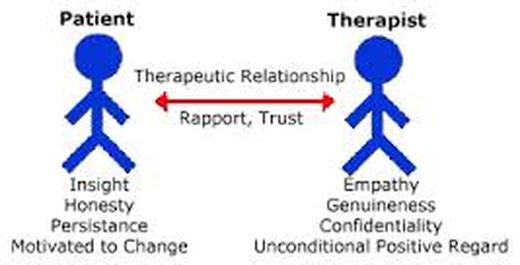A therapeutic relationship is the professional relationship between the health professional and the client. The aspects of a therapeutic relationship consist of:

- Trust
- Respect
- Empathy
- Understanding
- Non-judgement
- Cooperation
Therapeutic communication is used by the health professional to:
- Provide new information
- Promote understanding of a clients response to health problems
- Explore options of care/therapy
- Assist in decision making, facilitate client well-being

In building a therapeutic relationship with my future clients, it will further benefit the trust between the client and myself. Trust being a compelling component in the health profession, as it helps you to provide the essential care needed to an extent. The therapeutic relationship will make it easier for the client to confide in myself if needed, with no judgement made and also helping me to further understand problems to do with their health both physically and mentally.

As a result of building a strong therapeutic relationship, some of the positive outcomes for the clients include: an improved quality of life and an increase in trust. Trust being a major feature in therapeutic relationships as the client must trust that the care that we are providing is appropriate, and that we have an understanding on what we are providing.
